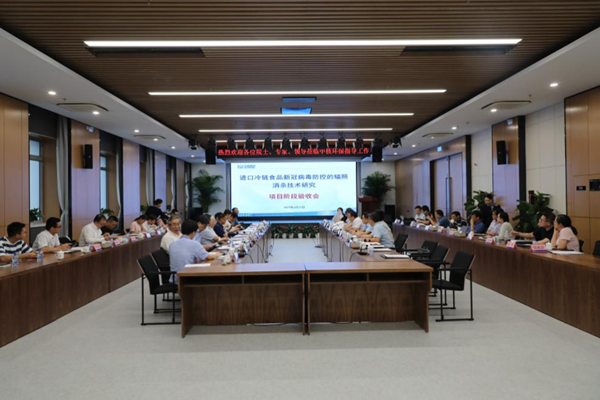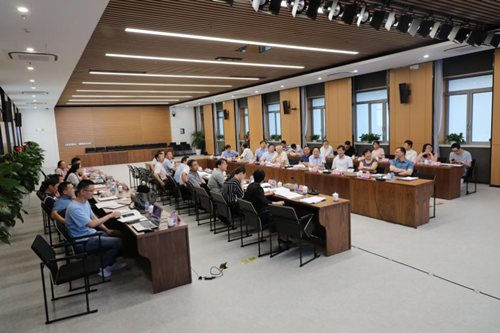Important first-phase results from the research project "The Research on Prevention and Control of COVID-19 Virus for Import Cold Chain Food by Radiation Sterilization Technology" were released on June 21. The results have passed the technology acceptance testing process organized by the Technology Quality and Information Technology Department of China National Nuclear Corporation (CNNC).
The project was led by the China Institute for Radiation Protection (CIRP), subordinate to CNNC, in collaboration with CNNC's China Isotope & Radiation Corporation (CIRC), Nuctech, the Institute of Microbiology of the Chinese Academy of Sciences (CAS), and Tsinghua University, among other institutes.
This first-phase results represent another major breakthrough by CNNC with regards to the application of nuclear technology, and mark a key step in China's SARS-CoV-2 radiation sterilization technology towards the goal of engineering application. The progress also indicates that CNNC, as a State-owned enterprise, is shouldering its social responsibility in terms of helping the prevention and control of the COVID-19 pandemic.

Guarding against imported cases and domestic resurgence has become the focus of the country's COVID-19 prevention and control work, and the prevention and control of COVID-19 through cold-chain food systems is one of the most important tasks in realizing this. The key lies in the mass disinfection of the outer packaging of cold food imports, which usually uses such technologies as chemical sterilization, ultraviolet sterilization and radiation sterilization. Radiation sterilization has obvious technical advantages over the former two in terms of reagent residue and penetration. However, the determination of the radiation dose and the effect of the radiation on food are the key difficulties in sterilizing the novel coronavirus using radiation.
The CIRP, CIRC, Nuctech and several other institutes have formed a team working together to solve these problems. After six months of scientific research, the first phase research task has been completed and key results have been achieved. Specifically, the achievements include: the radiation dose and supporting radiation sterilization techniques applied to sterilizing SARS-CoV-2 on imported cold chain food products have been determined; the impact of different doses of radiation exposure on the quality and safety of frozen products has been clarified; integrated solutions for cold chain disinfection plants that include people, vehicles and the environment, and the key hardware required, have been developed. The research results of this project will effectively promote demonstrations of the industrialized application of radiation sterilization of the coronavirus on cold-chain food, and will provide a convenient and harmless technology for disinfecting the virus on cold-chain food, which is of great significance to the prevention and control of the pandemic.

The team responsible for testing this technology was composed of nine experts from the Chinese Academy of Engineering, the Chinese Academy of Sciences, the Wuhan Branch of the Chinese Academy of Sciences, the China Institute of Atomic Energy (CIAE), the Chinese Academy of Agricultural Sciences (CAAS), Tsinghua University, the Academy of Military Medical Sciences (AMMS), and others.